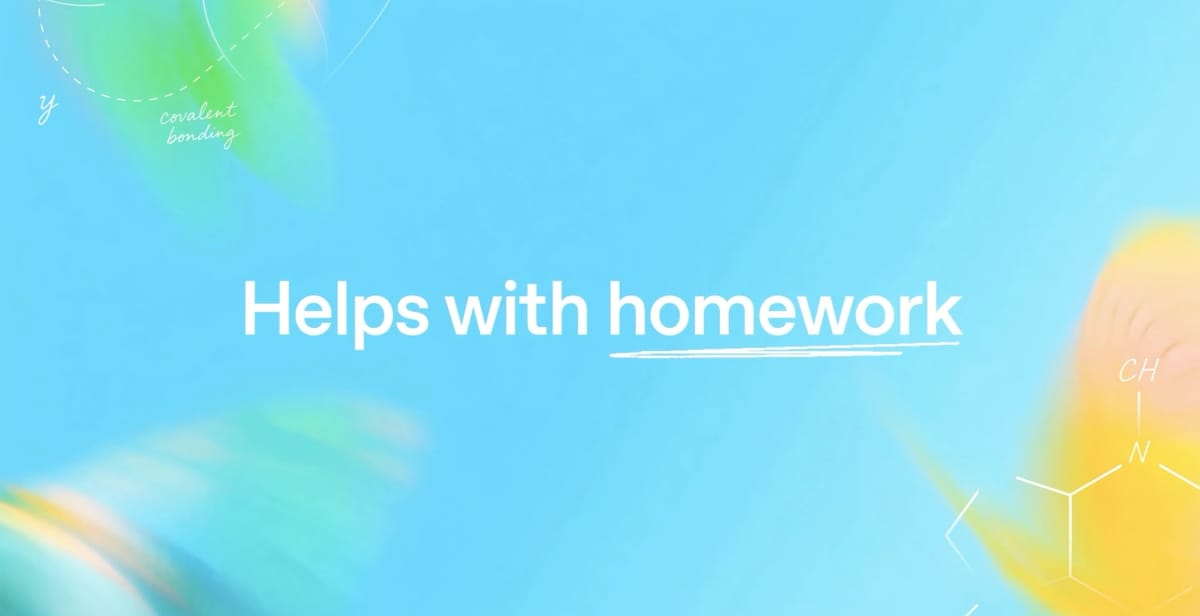OpenAI just dropped Study mode for ChatGPT, and it's basically the company's attempt to turn its chatbot from a homework-finishing machine into an actual tutor. Instead of spitting out complete answers, the new feature guides you through problems step-by-step, asks follow-up questions, and won't let you off the hook until you actually understand what's going on.
Key Points:
- Study mode launches for Free, Plus, Pro, and Team users today, with ChatGPT Edu getting access in the coming weeks
- Built with teachers and learning-science researchers
- Step-by-step prompts, scaffolds, and quick quizzes replace one-shot answers
Over one-third of 18-to 24-year-olds in the US use ChatGPT, and among these users, over one-quarter of their messages are about learning, tutoring, and school work, according to OpenAI user data. Since the launch of ChatGPT, Educators have been wrestling with a fundamental question: Is AI helping students learn or just helping them cheat? OpenAI's answer is Study mode, which tries to thread that needle by refusing to just hand over answers.
Here's how it works: You ask ChatGPT a question while Study mode is active, and instead of getting a neat response, you get guided back with questions like "What do you think the first step should be?" or "Can you explain this concept in your own words?" It's designed around what OpenAI calls "Socratic questioning" – basically the ancient Greek method of learning through dialogue rather than lecture.
The feature comes from collaboration with teachers, scientists, and pedagogy experts from over 40 institutions worldwide, and OpenAI has been testing it with college students through its ChatGPT Lab program. Early feedback suggests it's working – students describe it as having access to office hours 24/7, with one tester saying "It was like a tutor who doesn't get tired of my questions."
Study mode includes several key features that separate it from regular ChatGPT conversations. There are interactive prompts that combine hints and self-reflection questions, scaffolded responses that break information into digestible chunks, and knowledge checks through quizzes and open-ended questions. The system also personalizes support based on your skill level and remembers previous conversations to tailor lessons accordingly.
What's particularly clever is the toggle function – you can switch Study mode on and off during a conversation, which means you can get tutored through a concept and then flip back to regular ChatGPT when you need quick factual answers. It's like having both a patient teacher and a rapid-fire reference tool in the same interface.
Right now, Study mode runs on "custom system instructions" rather than being trained directly into the models, which OpenAI admits "results in some inconsistent behavior and mistakes across conversations." The company plans to bake this behavior directly into future models once they figure out what works best through student feedback.
OpenAI has also hinted at expanding Study mode with clearer visualizations for complex concepts, goal setting and progress tracking across conversations, and deeper personalization. The company is also working with Stanford University's SCALE Initiative to study how AI tools actually influence learning outcomes – research that could shape not just OpenAI's products but the entire AI education space.
It's a strategic play in what's becoming a heated battle for the education market. Anthropic is building its own Study Projects feature for Claude that "guides your learning process instead of just giving answers." Google's NotebookLM has soared in popularity and the company is testing "Guided Learning for Gemini" with similar functionality.
Teachers who’ve tried early builds like the pacing, though they still worry about hallucinations. OpenAI’s Leah Belsky says the goal is to “guide students toward deeper learning,” not do the work for them.

